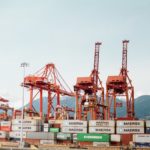 Research a few years ago from Cambridge University showed that dissatisfaction with democratic politics has leaped from a third of people to half of us over the last 25 years.
Research a few years ago from Cambridge University showed that dissatisfaction with democratic politics has leaped from a third of people to half of us over the last 25 years.
The research, which was compiled by a team from the university’s new Centre for the Future of Democracy, shows that 2019 was the worst year on record for democratic discontent. The study consists of data from over 4 million people, taken from over 25 international surveys conducted across 154 countries between 1995 and 2020.
Stanford researchers suggest that populism has played a central role in this decline. The researchers argue that the populists’ tendency to discredit formal institutions is resulting in significant harm being caused to democracy, as whilst governmental institutions are not without blame, the extent of the attack causes unnecessary damage.
It should perhaps come as no surprise, therefore that recent research from the University of Gothenburg showed that 70% of the world’s population now live in a dictatorship. In the wake of the fall of the Berlin Wall in 1989 we were supposedly in the midst of Francis Fukuyama called the “end of history” with the march of liberal democracy inevitable. Sadly, the Swedish report reveals that the global level of democracy is back at levels last seen in 1989.
The end of globalization?
Given the parlous state of liberal democracy, some have argued that the end of globalization itself is on the horizon. This concern is piggybacking on the concern raised during the Covid pandemic, when supply-chain disruptions prompted many to talk about producing more things at home. Couple this with the desire to meet pressing climate targets and there seems to be a demand for sources that are not simply the cheapest but also the greenest and most secure.
This should not mean that globalization is dead, however, but rather that it’s changing. Indeed, the DHL Global Connectedness Index developed by NYU Stern’s Center for the Future of Management shows that trade flows had quickly recovered from the pandemic-induced disruption of 2020 to reach record highs by the start of 2021. This was driven in large part by a surge in demand for goods as economies opened up again.
This demand could only be met by a robust supply chain, and the report shows that supply did expand to meet the biggest growth in demand since WWII, albeit with well documented constraints that potentially reduced what were already large swings in demand.
While there has been a realignment of supply chains as a result of the war in Ukraine, these have largely been due to geopolitical concerns than any fundamental issues with globalization. Indeed, the researchers still expect trade in goods to grow during 2022, albeit at a slower pace than if the war hadn’t happened.
General recovery
There has also been similarly strong recoveries in the flow of money and information. The last few years have also seen continued growth in international scientific collaboration, albeit at a somewhat slower rate than in the past. While there are some concerns about the different approaches being taken internationally regarding the flow of data, there is little sign that our information commons is going to retract.
The picture is less clear with regards to the flow of people, as while there has been some recovery from the massive retraction in travel during 2020, we are still 71% down on pre-pandemic levels. This marked the end of three decades of growth in international travel, and it’s likely that the war will dampen the recovery, especially in Europe. While leisure and business travel have both suffered, there has been no such decline in the growth in international migration, even before the Ukraine conflict created over three million refugees.
A feature of our globalized world is the resilience that the high levels of connectedness provides. While this has been tested during the pandemic, it has generally held up well and there are few signs of this changing, even if democracy itself is struggling at the moment.
With war hot on the heels of the pandemic, it might seem like a period of unrelenting change, but the demise of globalization is unlikely to be among them.